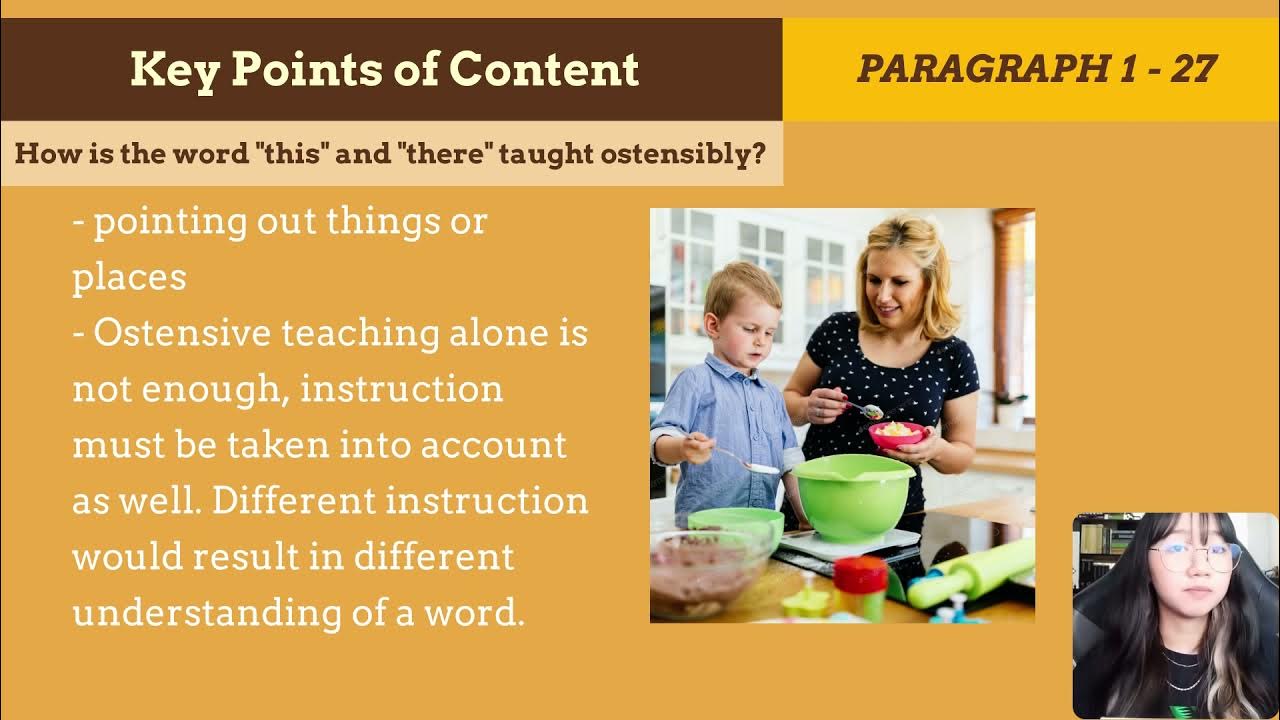PHILOSOPHY - Ludwig Wittgenstein
Summary
TLDRThis script explores Ludwig Wittgenstein's contributions to philosophy, particularly his insights on communication and language. Wittgenstein, a reclusive philosopher, argued that language often fails to convey clear ideas because people form different mental 'pictures.' His early work, 'Tractatus Logico-Philosophicus,' presented language as a tool for creating images in others' minds. Later, in 'Philosophical Investigations,' he suggested language functions as a tool in different 'games,' shaped by context and intent. Wittgenstein emphasized the importance of understanding language's role in self-knowledge and effective communication, aiming to help people navigate misunderstandings.
Takeaways
- 🧠 Ludwig Wittgenstein's philosophy focuses on the challenges of communication and how it often goes wrong.
- 🏡 Wittgenstein was born in 1889 in Vienna to a wealthy but troubled family, with multiple siblings taking their own lives.
- 📖 His book *Tractatus Logico-Philosophicus* (1921) discusses how language helps us form mental pictures of facts, enabling communication.
- 🖼️ He realized that language often fails because we create inaccurate or incomplete pictures in the minds of others.
- 🔄 Misunderstandings occur when we fail to grasp the 'language game' people are playing, like offering facts when emotional support is needed.
- 🎮 Wittgenstein's later work, *Philosophical Investigations*, introduces the idea of 'language games,' where language serves different functions based on context.
- 📏 Wittgenstein's attention to detail extended beyond philosophy, such as when he designed a house for his sister and insisted on raising a ceiling by three centimeters.
- 🔑 A key to better communication is understanding the underlying intent behind words, not just taking them at face value.
- 📚 Wittgenstein emphasized that much of our self-knowledge depends on language, which develops communally over time and shapes how we understand ourselves.
- 🕊️ Wittgenstein's ultimate goal in philosophy was to help people free themselves from confusion in communication, likened to 'showing the fly the way out of the fly bottle.'
Q & A
Who was Ludwig Wittgenstein, and why is he significant in philosophy?
-Ludwig Wittgenstein was an Austrian philosopher known for his work on the philosophy of language and communication. His insights into how language shapes our understanding of the world have had a lasting impact on both philosophy and linguistics.
What was Wittgenstein's background, and how did it influence his philosophical work?
-Wittgenstein came from a wealthy, highly cultured family in Vienna. Despite this, he lived a reclusive and solitary life. His early struggles with family tragedies and his introspective nature shaped his philosophical focus on the difficulties of communication and self-understanding.
What was Wittgenstein's 'Tractatus Logico-Philosophicus,' and what question did it address?
-The 'Tractatus Logico-Philosophicus,' published in 1921, was a short yet profound work that asked how humans manage to communicate ideas to one another. Wittgenstein argued that language works by creating pictures of facts in our minds, enabling us to understand the world.
What is the 'picture theory of language' introduced by Wittgenstein?
-Wittgenstein's 'picture theory of language' posits that language allows us to create mental pictures of facts. Words paint a rapid sketch that helps others understand the situation in their minds, like how model cars and pedestrians were used in a court case to explain an accident.
Why does communication often fail, according to Wittgenstein?
-Wittgenstein believed that communication fails because people often create unclear or inaccurate pictures in their own minds, making it difficult for others to grasp their intended meaning. Misunderstandings also arise when we interpret words beyond the speaker's intended meaning.
How does Wittgenstein's later work, 'Philosophical Investigations,' expand on his earlier ideas about language?
-In 'Philosophical Investigations,' Wittgenstein moved beyond the idea that language is solely about creating pictures. He introduced the concept of 'language games,' where language serves different purposes, like offering comfort or stating facts, depending on the context.
What are 'language games,' and how do they affect communication?
-'Language games' refer to the different ways language is used in various contexts. For example, a statement like 'You never help me' might not be a factual accusation but rather a request for emotional reassurance. Understanding the game being played is key to effective communication.
How does language influence self-understanding, according to Wittgenstein?
-Wittgenstein argued that much of our self-understanding depends on the words and language available to us. Publicly developed languages provide the tools we need to express and understand our private experiences, such as feelings of 'angst' or 'nostalgia.'
What role does reading and exposure to language play in self-knowledge?
-Reading and exposure to a rich variety of words and language help individuals better understand themselves. By expanding their vocabulary, people can articulate complex emotions and thoughts, enhancing both self-awareness and communication with others.
What was Wittgenstein's ultimate goal in his philosophical work on language?
-Wittgenstein's philosophical goal was to clarify the confusions caused by language. He famously described philosophy as a tool to show 'the fly the way out of the fly bottle,' meaning that his work aimed to free us from the misunderstandings that arise from unclear language.
Outlines

このセクションは有料ユーザー限定です。 アクセスするには、アップグレードをお願いします。
今すぐアップグレードMindmap

このセクションは有料ユーザー限定です。 アクセスするには、アップグレードをお願いします。
今すぐアップグレードKeywords

このセクションは有料ユーザー限定です。 アクセスするには、アップグレードをお願いします。
今すぐアップグレードHighlights

このセクションは有料ユーザー限定です。 アクセスするには、アップグレードをお願いします。
今すぐアップグレードTranscripts

このセクションは有料ユーザー限定です。 アクセスするには、アップグレードをお願いします。
今すぐアップグレード関連動画をさらに表示

Philosophy of language 5: Language games

Ludwig Wittgenstein on Language and Reality: The Philosophy on Constructing Meaning

Why Is Boredom So Uncomfortable? - Social Media, Wittgenstein, and Dissatisfaction

ОДНЕ МІРКУВАННЯ ПРО ОДНУ ДУМКУ ВІТҐЕНШТАЙНА (TLP, 2.0121)

Wittgenstein's Philosophical Investigations Sec. 1-27 & 66-71 Carolina_Derecho UPDEPPO Philosophy 1

John Langshaw Austin: Biografi dan pemikiran filsafatnya
5.0 / 5 (0 votes)
